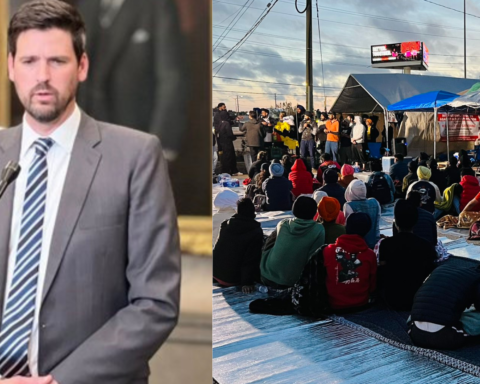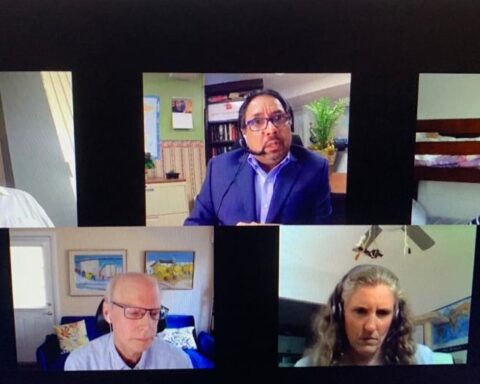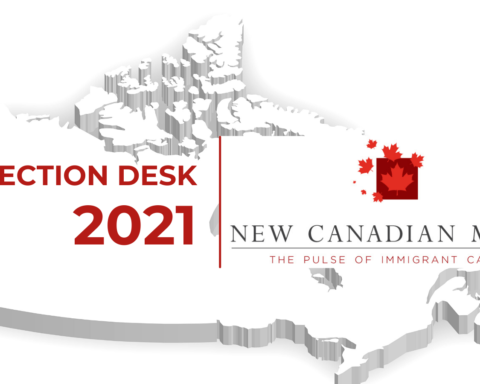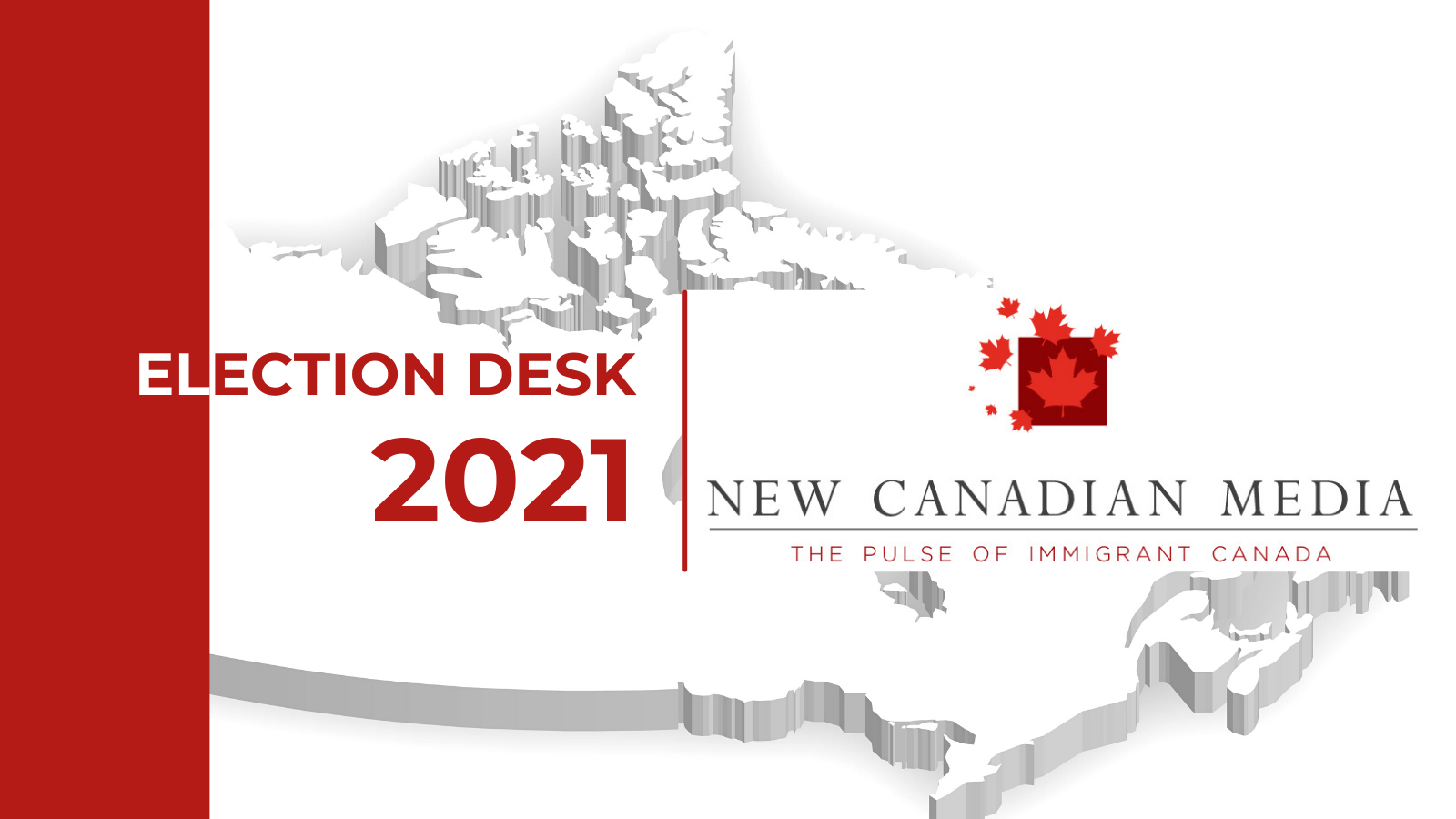 While neither the issues nor the members of the various diasporas across Canada are homogenous, most advocates seem to agree that as a matter of strategy, a minority Liberal government presents the best chance of meeting their needs.
While neither the issues nor the members of the various diasporas across Canada are homogenous, most advocates seem to agree that as a matter of strategy, a minority Liberal government presents the best chance of meeting their needs.
“The social policies of the Liberals make a stronger appeal to humanity,” Enzo Moreno, the director of the Centro Cultural Latino Americano, says in Spanish as we sit in the backyard. The Centro rests in Little Jamaica, an immigrant-heavy, working-class neighbourhood in the northwest end of Toronto, within the Eglinton-Lawrence riding.
Moreno, who’s worked with the racialized community for decades, says poverty, lack of affordable housing, food insecurity and precarious immigration are common issues, leaving many residents living in “third world-like conditions.”
The self-described anarchist says a Liberal win is good “strategically,” because there is “no real working-class party,” and with the Conservatives, the Centro would have likely closed.
Kurtis Vermont, a Liberal supporter and the president of the Afro Canadian Political Literacy Foundation (ACPLF), agreed a Liberal minority is “probably the best for the country” at this time.
“We need a strong progressive party (like the NDP) to push our national governing party on key issues,” he told New Canadian Media in a phone interview.
But while there’s hope, the work needed to start yesterday, these leaders agree.
Chronic Underfunding
For the last 19 months, Moreno and a group of a few volunteers from the community have been running a food bank out of the Centro to meet the rising food insecurity and poverty issues caused by the pandemic.
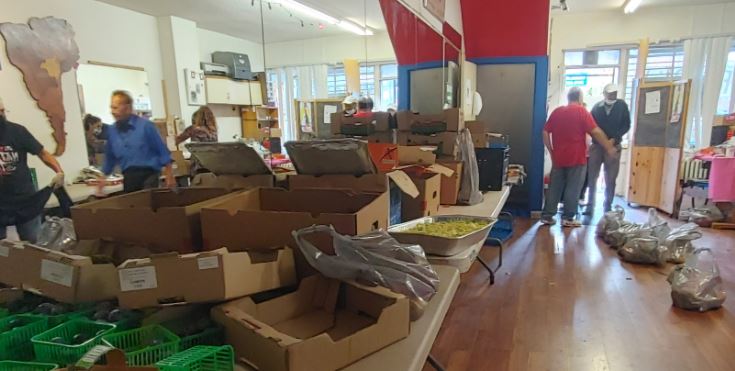
According to his estimate, they’ve been able to donate 17,000 plates and counting. This has been possible despite the chronic underfunding problems the Centro has run into since its inception.
Moreno says it’s a “miracle” they’ve been able to stay afloat, only possible because of the help received from donors, partners and co-sponsors such as the Red Cross, COSTI Immigrant Services and the York Hispanic Centre – as well as private community members who’ve donated their own funds and time.
“We’re indebted, but we are able to plug some holes here and there,” he says.
A result of this endless battle for funds is that the Centro’s ability to engage the community in cultural activities has been “reduced to the minimum.”
Instead, most energy and funds have been relocated towards the “social aspect,” he says, which has largely been feeding people through the food bank and trying to help undocumented people navigate city services.
“People’s needs are real. Many have lost their jobs and others have had to relocate,” he says, as a result of the strain the pandemic has put in people’s pockets and the lack of affordable housing. “Everybody is hurting.”
Moreno says everything comes down to social conditions, which includes the fact that many residents are frontline workers who are forced to work unsafe jobs with no benefits like paid sick days.
Previously, the CBC reported that Latinos are seven times more likely to contract COVID-19 than their white counterparts and four times as likely to require hospitalization.
While the riding has almost always been liberal (except from 2011-2015), Moreno says “the majority of the people there feel excluded.”
“People generally don’t see themselves in the candidates, anyone that walks the neighbourhood, that looks like them,” Moreno said.
With that said, Moreno described continuing Liberal MP Marco Mendicino as a “just and honest man,” saying he’s genuinely supported some of Centro’s projects in the past.
“So, I do believe there is a way (to work with this government going forward),” he said.
Over-incarceration
Similar issues plague the urban regions of the country where Black and Indigenous people live, says Vermont. Lack of affordable housing and childcare are certainly “major issues” within the community.

But what’s “top of mind for most,” he adds, is the passing of Bill C-22, which promises to repeal Minimum Mandatory Penalties (MMPs) – 20 of them, to be exact – which data shows leads to the over-incarceration of Black and Indigenous people in particular.
The Liberals only introduced the bill this past February. It promises to repeal 14 offences in the Criminal Code plus all six offences under the Controlled Drugs and Substances Act which currently receive minimum mandatory penalties.
The bill will also give judges more sentencing options like “diversionary programs … to offer other rehabilitative programs to support” people within the criminal justice system, says Vermont.
According to an ACPLF press release citing government statistics, while Black and Indigenous people represented only three and five per cent of the overall population in 2019 and 2020, respectively, they each made up 7.3 and 30 per cent of the federal inmate populations. Reports have found direct links between these statistics and MMPs, which raise these two groups’ likelihood of arrest.
On Sept. 1, in an interview with Vermont, MP for York-South Weston, Ahmed Hussen, suggested the bill had failed to pass because the NDP had “delayed” it for political reasons.
Asked about Hussen’s deflection, Vermont said he expects some political jockeying and flexing, but “at a minimum,” judging by their speeches, the parties appear to be “looking forward to working together on key issues and leaving behind petty election fighting.”
While he conceded more needs to be done to build true Reconciliation with Indigenous Peoples, he pointed to the lifting of 109 long-term boil-water advisories as evidence of progress.
“We can obviously discuss, debate, argue about the speed to which progress is occurring,” he said. “But the reality is that progress is on the way.”
It should be noted that the Liberals promised to end all water advisories by March 2021 when first elected with a majority in 2015. But even as they’ve lifted some, more have emerged.
According to a TVO article, “as of late August, there were 51 long-term drinking-water advisories related to public water systems on First Nations reserves, including 43 in (Ont.)” As of Sept. 16, “there were also 34 short-term advisories, 14 of them in (Ont.)”
Common Thread
In the Filipino community, with their first representative in the House of Commons after a 17-year drought, expectations are high that the issues affecting their community, such as immigration concerns including precarious status, family reunification, and foreign credentials recognition, will be included in the agenda.
In Nepean, ON, during the campaign, members of the Ottawa Punjabi Association protested the area’s Liberal MP – Chandra Arya – by creating third-party signs saying “Nepean deserves better, not Arya.”
Vinny Manes, a member of the Association, told the CBC their dissatisfaction was with Arya’s lack of action during global protests in support of India’s farmers, saying “Mr. Arya didn’t support us or anyone else because he doesn’t have the competency to do so.”
While all diasporas differ in everything from culture to region, there is a “common thread” behind the systemic limitations faced by racialized people, says Vermont.
“The common thread is that we (visible minorities) are seen as a threat … as the other,” he says.
Likewise, the passing of Bill C-22 should go a long way in helping all racialized, underserved and overexploited communities, he hopes.
“It’s like looking at civil rights overall,” he says. “When you typically are doing something for those who are worst affected, everybody else is better off as a result.”
Fernando Arce is a Toronto-based independent journalist originally from Ecuador. He is a co-founder and editor of The Grind, a free local news and arts print publication, as well as an NCM-CAJ member and mentor. He writes in English and Spanish, and has reported from various locations across Canada, Ecuador and Venezuela. While his work in journalism is dedicated to democratizing information and making it accessible across the board, he spends most of his free time hiking with his three huskies: Aquiles, Picasso and Iris. He has a BA in Political Science from York University and an MA in Journalism from Western University.



